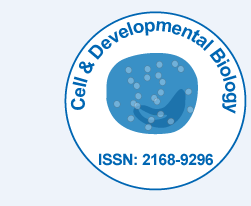
Клеточная биология и биология развития
Открытый доступ
ISSN: 2168-9296

ISSN: 2168-9296
Ian C.G. Weaver
Adaptation to environmental changes is based on the perpetual generation of new phenotypes. Modern biology has focused on the role of epigenetic mechanisms in facilitating the adaptation of organisms to changing environments through alterations in gene expression. Inherited and/or acquired epigenetic factors are relatively stable and have regulatory roles in numerous genomic activities that translate into phenotypic outcomes. Evidence that dietary and pharmacological interventions have the potential to reverse environment-induced modification of epigenetic states (e.g., early life experience, nutrition, medication, infection etc.) has provided an additional stimulus for understanding the biological basis of individual differences in cognitive abilities and disorders of the brain. It has been suggested that the accurate quantification of the relative contribution of heritable genetic and epigenetic variation is essential for understanding phenotypic divergence and adaptation in changing environments, a process requiring stable modulation of gene expression. The main challenge for epigenetics in psychology and psychiatry is to determine how experiences and environmental cues influence the expression of neuronal genes to produce long-term individual differences in behavior, cognition, personality and mental health. To this end, focusing on DNA and histone modifications and their initiators, mediators and readers may provide new inroads for understanding the molecular basis phenotypic plasticity and disorders of the brain. In this review, we survey recent developments revealing epigenetic aspects of mental illness, as well as review some of the challenges of current approaches and some future directions in the field of behavioral epigenetics.